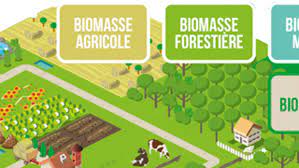Bujumbura: High-level political dialogue on the bioeconomy in Burundi and the EAC19/10/2023 | 848 views Published by : Admin Systeme

The Ministry of National Education and Scientific Research of the Republic of Burundi, through the Commission National Center for Science, Technology and Innovation (CNSTI) and its partners-the International Center for Insect Physiology and Ecology (icipe)/BioInnovate Africa, the Commission for Science and Technology of Africa East (EASTECO) and the Stockholm Environment Institute-Central Africa (SEI) organized on Tuesday, October 17, 2023, a high-level political dialogue on the bioeconomy in Bujumbura.
The policy dialogue focuses on the role of the sustainable bioeconomy in future economic growth in East Africa and Burundi, and the need for strategies to support its development. According to experts, the bioeconomy is understood as the use of scientific knowledge to add social and economic value to biological resources such as plants, animals, insects and microbes, among others, while ensuring a clean environment, including including air, water and earth. In 2022, the East African Community (EAC) adopted a regional bioeconomy strategy that supports agriculture and sustainable food systems, sustainable industrialization, renewable energy and the overall health and well-being of people in the region. Globally, more than 70 countries have developed specific bioeconomy strategies to boost economic growth while preserving biodiversity, reducing carbon emissions and meeting the 2030 United Nations Sustainable Development Goals . Regarding Burundi, “a national bioeconomy strategy would align well with the nation's vision of becoming an emerging country by 2040 and a developed country by 2060,” said Professor Frédéric Bangirimana, Secretary. permanent to the Minister of National Education and Scientific Research of Burundi. The policy dialogue focuses on the role of the sustainable bioeconomy in future economic growth in East Africa and Burundi, and the need for strategies to support development, which is why scientists and policy makers are discussing plans to develop a national bioeconomy strategy to stimulate economic growth continued the Permanent Secretary. This high-level dialogue focuses on the bioeconomy to see how to use natural animal and plant resources in a way that respects the environment and nature to ultimately produce what is flavor and organic quality so that future generations can benefit from the wealth of biodiversity.
TeIt is understood as the use of scientific knowledge to add social and economic value to biological resources such as plants, animals, insects and microbes while ensuring the environment is clean, including air, water and the earth. This dialogue was invited to various partners from ministries, the private and public sectors, entrepreneurs and researchers to have a common vision of how we could combine the terms "economy" and "biology" in sustainable management of development for all.
January 31, 2020 | 806 views
© 2023 EJOHEZA NEWS Designed by DSCOMPANY



 Français
Français Ikirundi
Ikirundi